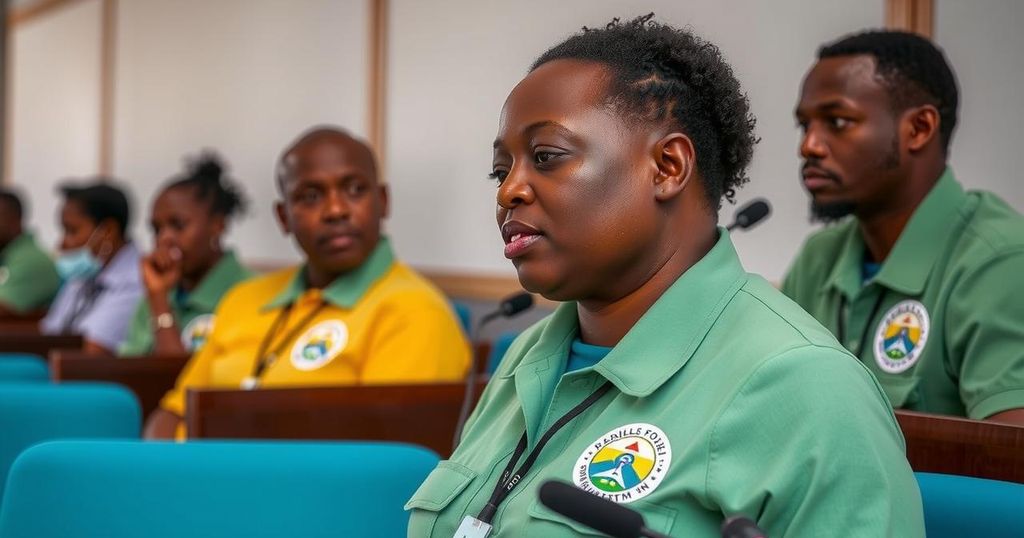Provisional results show that 91.8% of Gabonese voters supported a new constitution that limits presidential terms and bars dynastic succession. Voter turnout was reported at 53.54%. The referendum reflects ongoing tensions and concerns regarding governance following a military coup that ousted former president Ali Bongo. Opposition voices argue the constitution favors military leaders and could entrench authoritarian rule.
Gabon’s military authorities announced the provisional results of a referendum indicating that an overwhelming majority of voters supported a new constitution, heralding a significant transition for the oil-rich nation. Out of approximately 860,000 registered voters, the provisional results revealed that 91.8 percent cast their votes in favor of the new constitution, which proposes limiting presidential terms to a maximum of two seven-year durations, eliminates the position of prime minister, and prohibits dynastic succession. Participation in the vote was reported at 53.54 percent, which was notably lower than earlier estimates, and the election process occurred without any major incidents at polling stations nationwide.
The new constitutional framework stipulates that presidential candidates must be exclusively Gabonese and have at least one Gabon-born parent, effectively excluding former President Ali Bongo Ondimba from future elections. Transitional president Brice Oligui Nguema, who assumed power following a coup in August last year, described the referendum as a significant advance for the country. The campaign preceding the vote was heavily influenced by government propaganda, raising questions about the integrity of the process.
Despite acknowledging support for the military leadership, some citizens expressed concern about the ramifications of the new constitution. Those opposed argue that the new legal framework was deliberately designed to facilitate the continuation of military rule and instate a dictator. The referendum reflects broader sentiments regarding governance, with recent surveys showing a majority of respondents believe the country is on the right path but cite unemployment and issues of security as primary concerns.
The recent referendum in Gabon occurs against the backdrop of a military coup that ousted long-time leader Ali Bongo Ondimba, who had been in power for 14 years. The coup leaders, now in charge of the government, have introduced new constitutional proposals that reflect their governance aims. The move towards a new constitution is seen as an effort to solidify authority and prevent the return of dynastic politics, an issue that has sparked debate regarding its legitimacy and the potential for future democratic governance. Gabon is rich in natural resources, particularly oil, which makes developments in governance particularly significant for its economic stability and growth.
The results of Gabon’s constitutional referendum indicate strong popular support for the military-led government’s proposed changes to the nation’s legal framework. While the overwhelming approval rate may signal a desire for stability and governance reform, significant skepticism remains regarding the transparency of the process and fears of a drift towards authoritarianism. The outcome will shape Gabon’s political landscape and future elections as the country navigates its path toward civilian governance.
Original Source: www.tiogapublishing.com






